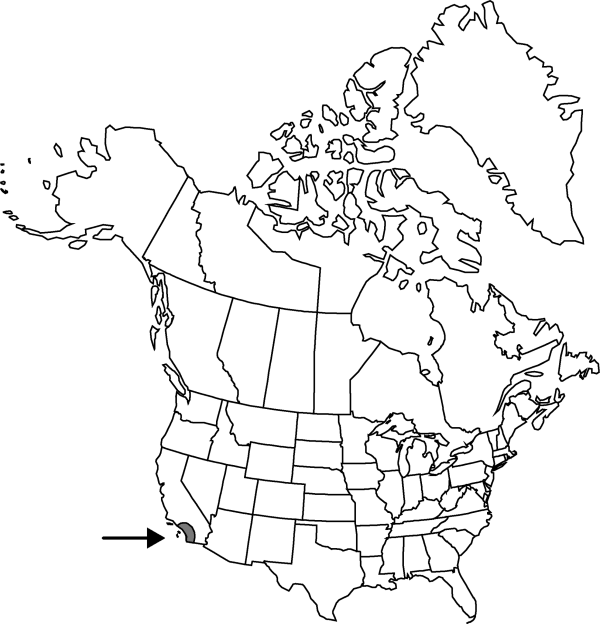Difference between revisions of "Atriplex parishii var. parishii"
imported>Volume Importer |
imported>Volume Importer |
||
| Line 44: | Line 44: | ||
|publication year= | |publication year= | ||
|special status= | |special status= | ||
| − | |source xml=https:// | + | |source xml=https://bitbucket.org/aafc-mbb/fna-data-curation/src/2e0870ddd59836b60bcf96646a41e87ea5a5943a/coarse_grained_fna_xml/V4/V4_692.xml |
|genus=Atriplex | |genus=Atriplex | ||
|subgenus=Atriplex subg. Obione | |subgenus=Atriplex subg. Obione | ||
Latest revision as of 22:00, 5 November 2020
Stems erect or spreading to prostrate, 0.5–2 dm; branches almost horizontal, fragile, white scurfy, appearing almost pubescent, becoming sparingly villous in inflorescence. Leaves numerous, opposite or alternate, distal ones imbricate, sessile; blade gray to white, lanceolate to ovate, (2–)4–10 × 3–5 mm, rigid, base rounded, margin entire, densely scurfy. Staminate flowers mostly in distal axils pistillate in proximal axils. Fruiting bracteoles deciduous, ovate or rhombic, slightly compressed, 2.5–3.5 mm and as broad, united 1/2 of length, often subhastately lobed, entire or with few teeth on each side, faces smooth or tuberculate. Seeds dark brown or almost black, 1.2 mm.
Phenology: Flowering late summer–fall.
Habitat: Saline substrates
Elevation: below 100 m
Discussion
Of conservation concern.
Atriplex parishii var. parishii differs further from var. depressa in the trichomes, which have been characterized as woolly, but individual trichomes are evident.
Selected References
None.
